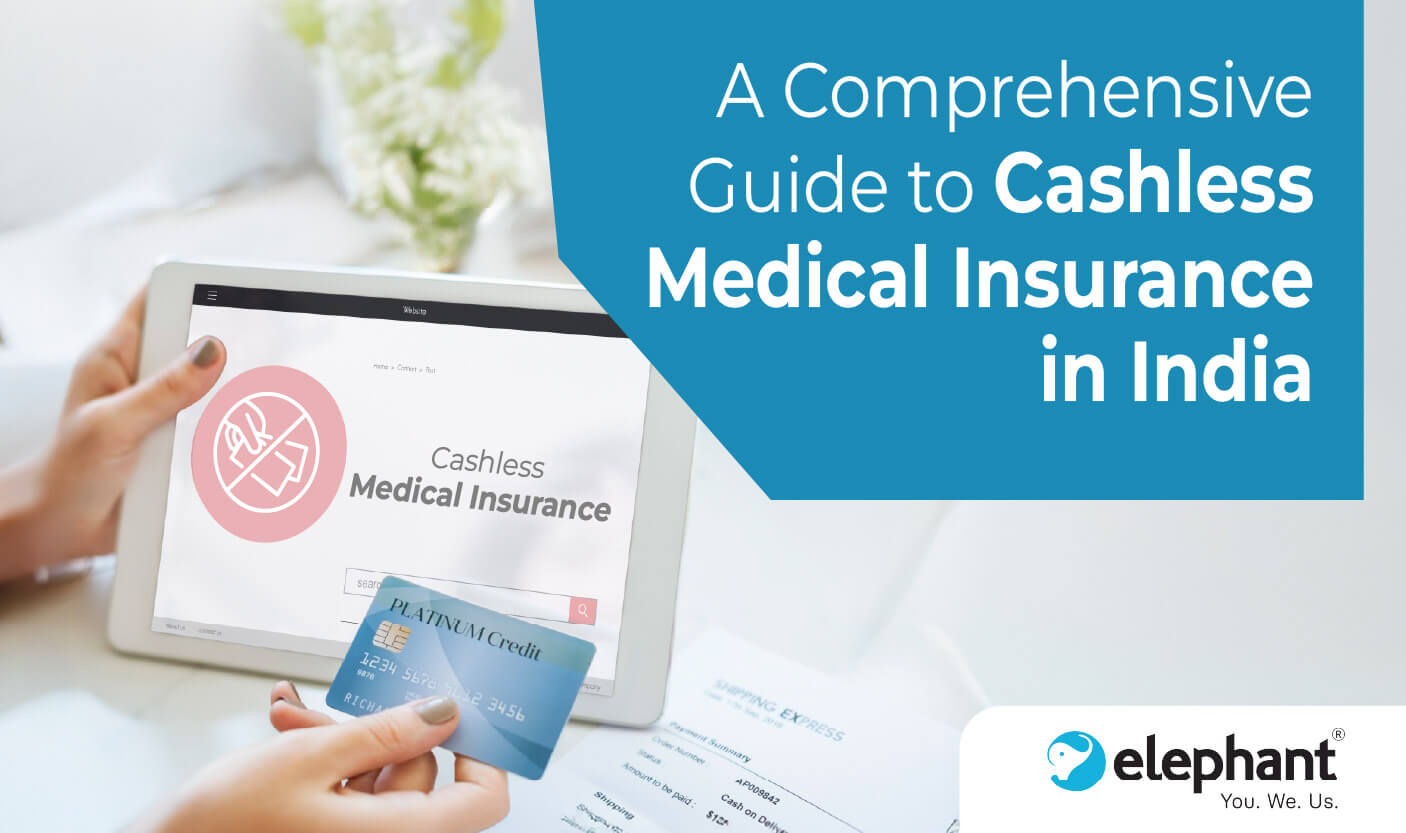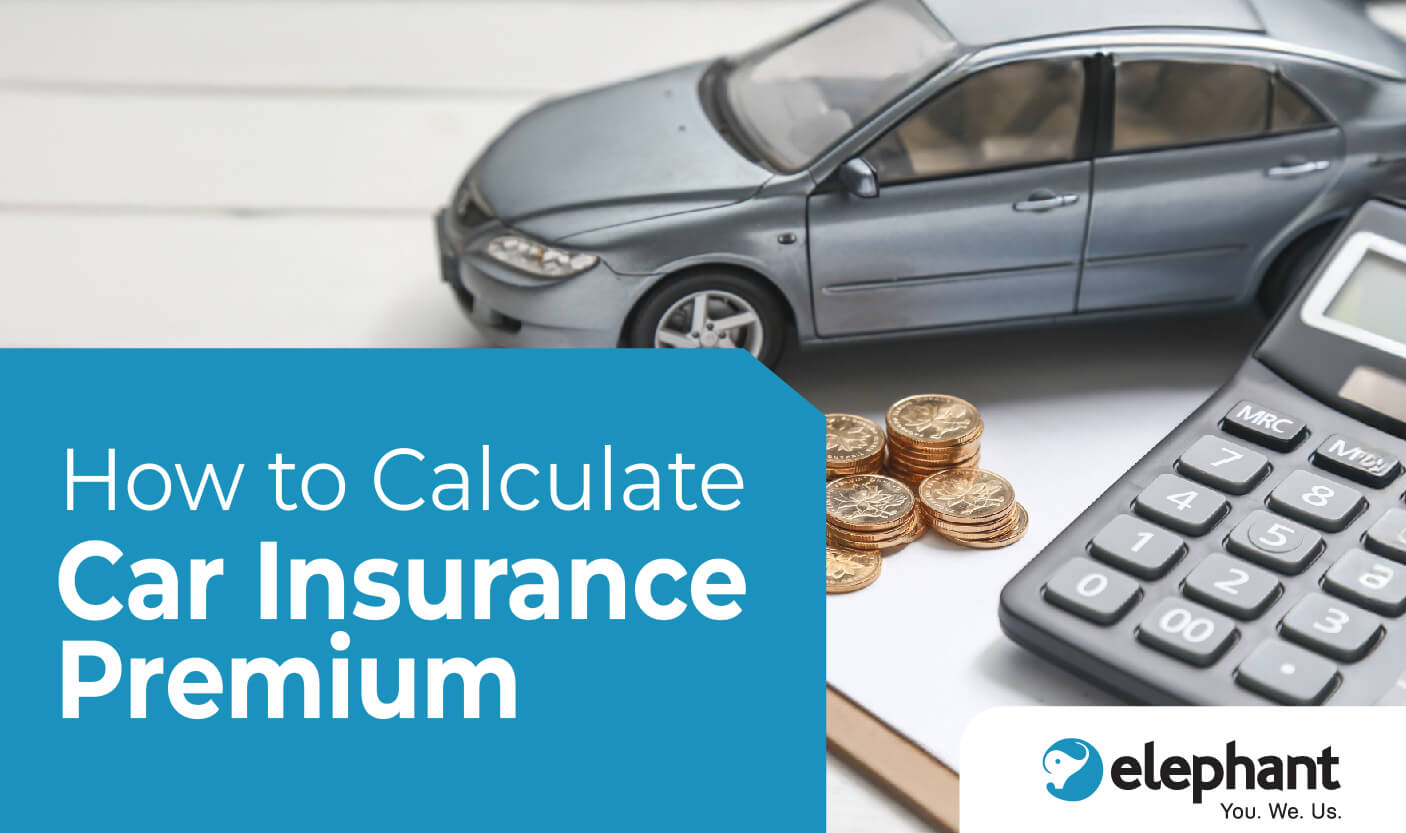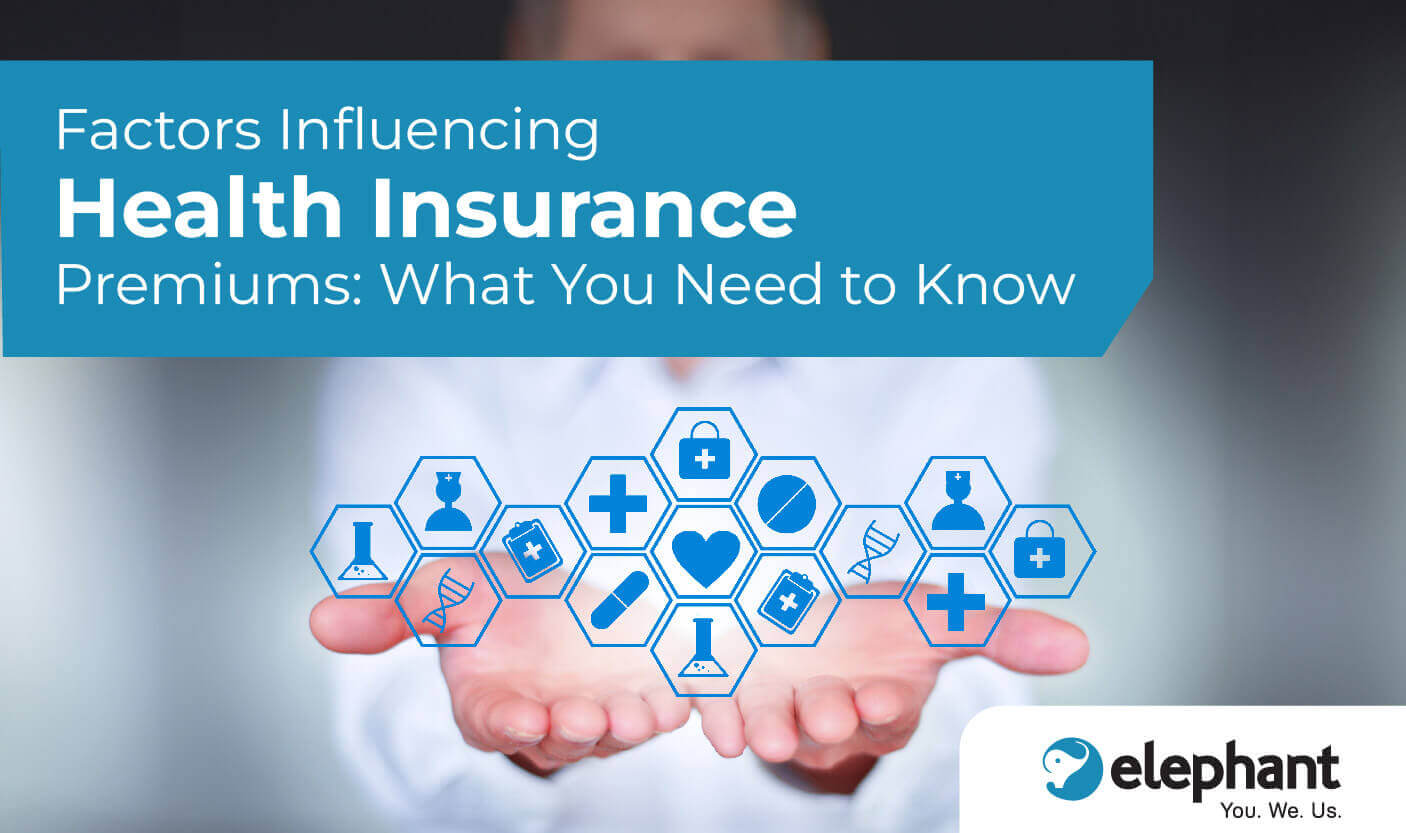-
CAR INSURANCE
Car InsuranceFlat 80%* OFFGet right cover at best price on your car insurance policy. Unlock your corporate superpower today.GET QUOTESWhat does your car insurance cover you for?Comprehensive coverageLiability coveragePersonal accident coverageZero-depreciation coverMany more add-on coversGet your car insured with the best features - completely online, right now!CloseWhat do you get at Elephant Insurance?Corporate Superpower of best Car Insurance DealsAI-Based Car Insurance RecommendationsHandpicked Insurers for Car InsuranceUnmatched Prices on Car Insurance PremiumsInstant Policy Issuance for your vehicle100% Assistance from ExpertsDigital Relationship ManagerBest-in-Class Claims ServiceLifetime Personalised AccountRenewal Management
-
TWO-WHEELER
INSURANCE
Two-Wheeler InsuranceStarting at Rs.546* only.Get right cover at best price and insure your two-wheeler for a joy ride. Unlock your corporate superpower today.GET QUOTESWhat does your two-wheeler insurance cover you for?Comprehensive coverageLiability coveragePersonal accident coverageZero-depreciation coverMany more add-on coversGet your two-wheeler insured with the best features - completely online, right now!CloseWhat do you get at Elephant Insurance?Corporate Superpower of best Two-wheeler Insurance DealsAI-Based Two-wheeler Insurance RecommendationsHandpicked Insurers for Two-wheeler InsuranceUnmatched Prices on Two-wheeler Insurance PremiumsInstant Policy Issuance for your vehicle100% Assistance from ExpertsDigital Relationship ManagerBest-in-Class Claims ServiceLifetime Personalised AccountRenewal Management
-
TERM LIFE
INSURANCE
Term Life InsuranceRs.1 crore life cover at Rs.503/month* only.Securing your loved ones future is not expensive, it is priceless! Be a superhero by unlocking your corporate superpower today.GET QUOTESWhat does your term life insurance cover you for?Death benefitsCritical illnesses coverAccidental death benefitWaiver of premiumMany more add-on coversGet your term life insurance with the best features - completely online, right now!CloseWhat do you get at Elephant Insurance?Corporate Superpower of best Term Life Insurance DealsAI-Based Term Life Insurance RecommendationsHandpicked Insurers for Term Life InsuranceHandpicked Insurers for Term Life InsuranceInstant Policy Issuance for you and your family100% Assistance from ExpertsDigital Relationship ManagerBest-in-Class Claims ServiceLifetime Personalised AccountRenewal Management
-
HEATLH
INSURANCE
Health InsuranceGet Rs.5 lakh health cover at Rs.18/day* only.Protecting your health is always our priority. Be a superhero by unlocking your corporate superpower today.GET QUOTESWhat does your health insurance cover you for?Unexpected medical billsPre and post hospitalisation billsDay care treatmentsMaternity, newborn care and organ donor expensesMany more add-on coversGet your health insurance with the best features - completely online, right now!CloseWhat do you get at Elephant Insurance?Corporate Superpower of best Health Insurance DealsAI-Based Health Insurance RecommendationsHandpicked Insurers for Health InsuranceUnmatched Prices on Health Insurance PremiumsInstant Policy Issuance for you and your family100% Assistance from ExpertsDigital Relationship ManagerBest-in-Class Claims ServiceLifetime Personalised AccountRenewal Management
-
CYBER PROTECT
Cyber Protect InsuranceGet Rs.1 lakh cyber protection cover at Rs.55/day* only.Don't be a victim of cyber fraud! Get right cover at best price on your cyber insurance policy. Unlock your corporate superpower today.GET QUOTESWhat does your cyber insurance cover you for?Legal protectionUnauthorised online transaction coverPhishing and email spoofing coverCyber stalking and identity theft coverCyber extortion and many more coveragesGet your cyber insurance with the best features - completely online, right now!CloseWhat do you get at Elephant Insurance?Corporate Superpower of best Cyber Insurance DealsAI-Based Cyber Insurance RecommendationsHandpicked Insurers for Cyber InsuranceUnmatched Prices on Cyber Insurance PremiumsInstant Policy Issuance for your cyber protection100% Assistance from ExpertsDigital Relationship ManagerBest-in-Class Claims ServiceLifetime Personalised AccountRenewal Management
-
OTHER
PRODUCTS5
Critical Illness InsuranceA must-have protection to secure you against critical illnesses.GET QUOTESPersonal Accident InsuranceAccidents are sudden and can cause damage to your financial planning as well.GET QUOTES
Home /
Welcome to Elephant Blog
Helping you to make informed decisions about insurance

published on January 21, 2025 | Health Insurance
There is a rapid growth in the healthcare sector of the bustling metropolis of Hyderabad which houses a rich culture and IT hub. To protect yourself and your family members from the financial challenges that may occur due to unforeseen medical costs, it is essential that you acquire a health insurance.
In order to provide valuable insights into the different types of health insurance policies available to you, factors and steps you may need to consider and to help you understand the process of acquiring a policy, this guide will assist you throughout.
In India, health insurance serves as a financial cushion, providing coverage for various hospitalization-related medical costs. Having a financial safety net in case of sickness or injury gives you peace of mind.
Benefits of Having Health Insurance in Hyderabad
-
Financial Protection:
-
Cashless Hospitalization:
-
Tax Benefits:
To ensure that you don’t deplete your financial savings due to unforeseen medical costs, health insurance comes into play.
Access to Quality Healthcare:
Quality hospitals and health specialists can be acquired as health insurance opens up multiple such options.
The need for upfront payments is eliminated as many health insurance plans offer cashless hospitalization facilities.
There are numerous tax benefits that one can get for health insurance premiums under Section 80D of the Income Tax Act.
Also Read: Understanding Tax Benefits: How Health Insurance Impacts Your Taxes
Types of Health Insurance Plans in Hyderabad
-
Several types of health insurance plans are available in Hyderabad:
-
Individual Health Insurance:
-
Family Floater Health Insurance:
-
Senior Citizen Health Insurance:
-
Critical Illness Insurance:
A single individual is covered under this plan.
Under a single policy, multiple members of the family are covered.
A policy that caters especially to elderly people.
Upon diagnosis of critical illness, a lumpsum amount is paid to the individual.
Factors to Consider When Buying Health Insurance in Hyderabad
-
Sum Insured:
-
Network Hospitals:
-
Pre-existing Conditions:
-
Add-on Covers:
-
Premium Cost:
-
Claim Settlement Ratio:
Based on your age, health history, and the size of your family, choose an insured sum that perfectly covers the medical costs.
For convenient access to cashless treatments, opt for a plan that covers a wider range of network hospitals in Hyderabad.
Check if the policy you are acquiring covers pre-existing conditions and check if there’s a waiting period.
Take into consideration additional optional health insurance riders like maternity benefits, personal accident cover, or dental coverage.
In order to find the best deal, compare premiums from different insurers.
To understand the efficiency of the health insurance policy thoroughly research the insurance company’s claim settlement ratio.
Also Read: Things to consider while buying health insurance plans
Steps to Buy Health Insurance in Hyderabad
-
Assess Your Needs:
-
Compare Plans:
-
Choose a Plan:
-
Submit Documents:
-
Pay Premium:
Based on factors like your age, health, and size of the family, determine your coverage requirements.
Compare premiums, features, and network of hospitals after obtaining multiple quotes from different insurance companies.
Choose a plan that best aligns with your needs and budget.
Important documents like age proof, income proof, and medical records should be furnished and provided to the insurance company (if applicable).
To activate your insurance policy, make the initial premium payment.
Tips for Managing Your Health Insurance
- Renew your policy in a timely manner.
- Update your insurer about any changes.
- Read your policy and understand the terms and conditions thoroughly.
- Take advantage of all the benefits offered to you under the health policy
- Utilise online services for easy policy management and claims submission.
Conclusion
Buying health insurance in Hyderabad is necessary to protect your financial health. Understanding the various kinds of plans, considerations, and steps can help you choose a policy that suits your specific needs and make an informed decision. Keep in mind, that purchasing a health insurance policy is a way to invest in your well-being and mental stability.
Do you want to know about the health insurance options available to you? Reach out to us by calling 1800 266 9693 via phone or email us at support@elephant.in for further information, or browse Elephant.in website!
*Terms and conditions apply. The information provided in this article is generic in nature and for informational purposes only. It is not a substitute for specific advice in your own circumstances. You are recommended to obtain specific professional advice from before you take any/refrain from any action. Tax benefits are subject to changes in tax laws. Please contact your tax consultant for an exact calculation of your tax liabilities.| EL/BLOGS/24-25/22

published on January 18, 2025 | Health Insurance
In today’s increasingly rapid society, having health insurance is crucial because unforeseen medical crisis can occur, putting families at risk financially. Cashless health insurance, a widely favored and convenient choice, provides a security blanket by paying for medical costs without the need for initial payments. Policyholders have the option to get treatment at network hospitals, where the insurance provider will directly pay the bill, instead of paying upfront and waiting for reimbursement later, making the process easier and less stressful.
This guide will provide a comprehensive explanation of cashless medical insurance for individuals who are not familiar with health insurance, covering its definition, advantages, functioning, and important takeaways. Having this information allows you to make educated choices and guarantee that you and your loved ones are financially secure in the event of medical emergencies.
What is Cashless Medical Insurance?
Cashless health insurance policy is a kind of medical insurance that allows policyholders to get treatment without making immediate payments. Instead of paying hospital bills upfront and seeking reimbursement after, the insurance company pays the hospital bill directly. Healthcare providers partnered with the insurance company offer this service at in-network hospitals.
In a place such as India, where healthcare costs can be burdensome, cashless health insurance offers significant relief. In times of crisis, it guarantees access to vital medical treatment without the burden of raising money.
How Cashless Medical Insurance Works
-
Network Hospital Selection:
Treatment under cashless medical insurance is applicable only at in-network hospitals, part of the insurance company’s approved list. Every insurance provider offers a list of network hospitals where the cashless facility can be availed.
-
Hospitalization Process:
For planned hospitalization, advance notice (usually 48-72 hours prior to admission) needs to be provided to the insurance company. In the case of emergency hospitalization, this can be done within 24 hours. Once a network hospital is selected, a pre-authorization form, completed with the assistance of the hospital’s insurance desk, will be submitted to the insurance company for approval.
-
Approval by the Insurance Provider:
After receiving the pre-authorization form, the insurance company verifies that the treatment is covered under the policy. Upon approval, the bill settlement between the hospital and the insurance company takes place directly. The amount covered depends on the sum insured and the policy terms.
-
Final Settlement and Discharge:
After treatment, the hospital sends the final invoice to the insurance provider for settlement. Any costs not covered by the policy, such as consumables or registration fees, must be paid separately. Once the settlement is complete, the patient is discharged without having to pay large bills upfront.
Also Read: Things to know about cashless health insurance
Benefits of Cashless Medical Insurance
-
No Upfront Payments:
One of the biggest advantages is the elimination of the need to arrange funds during medical emergencies, as the expenses are settled directly between the insurance provider and the hospital.
-
Convenience:
Cashless Health insurance reduces paperwork related to reimbursement claims, simplifying the process by avoiding the submission of multiple documents and bills after treatment.
-
Access to Quality Care:
Cashless health insurance provides access to reputed hospitals, ensuring quality healthcare services.
-
Immediate Financial Relief:
Cashless health insurance offers immediate financial support, allowing patients and families to focus on treatment and recovery during medical emergencies.
-
Wide Network of Hospitals:
Leading insurance companies in India have a vast network of hospitals, ensuring the cashless facility can be accessed nationwide, including at multispecialty providers.
Types of Treatments Covered by Cashless Medical Insurance
A wide range of medical treatments is typically covered by cashless medical insurance. Common treatments include:
-
Hospitalization Costs:
Inpatient stay, nursing charges, doctor’s consultation fees, and surgery costs.
-
Pre- and Post-Hospitalization Expenses:
Medical expenses incurred before and after hospitalization, generally for a specified number of days.
-
Daycare Treatments:
Procedures not requiring 24-hour inpatient hospitalization, such as cataract surgery, dialysis, or chemotherapy.
-
Ambulance Charges:
Emergency transportation to the hospital via ambulance is often included in the policy.
-
Diagnostics and Medications:
Some policies cover diagnostic tests and prescribed medications during hospitalization.
Also Read: Things to consider while buying health insurance plans
Points to Consider When Opting for Cashless Medical Insurance
-
Network Hospitals:
Review the list of in-network hospitals before purchasing a policy to ensure that nearby, efficient, or preferred hospitals are part of the insurer’s network.
-
Claim Process Understanding:
Familiarity with the claim process is essential. Understand the time limits for notifying the insurance provider about planned or emergency hospitalization.
-
Coverage and Exclusions:
Read the policy carefully to understand what is covered. Some treatments or pre-existing conditions, like dental care, may be excluded.
-
Sub-Limits:
Some policies include sub-limits on treatments or hospital room types. For example, coverage may only extend to a shared room, and choosing a private room could result in additional costs.
-
Pre-Authorization:
Timely pre-authorization is crucial for a smooth cashless claim process. Completing this step can help avoid delays during hospitalization.
-
Partial Coverage:
Be mindful that not all expenses are covered under cashless insurance. For instance, toiletries, consumables, or registration fees may need to be paid out of pocket.
Conclusion
Selecting the right policy aligned with personal and family healthcare needs is an essential step in ensuring adequate coverage. A policy with a comprehensive network of hospitals, familiarity with the claim process, and awareness of sub-limits and exclusions is vital to maximizing the benefits of cashless medical insurance.
Are you interested in knowing what health insurance choices you have? For additional information, visit Elephant.in or give 1800 266 9693 a call or send an email to support@elephant.in!
*Terms and conditions apply. The information provided in this article is generic in nature and for informational purposes only. It is not a substitute for specific advice in your own circumstances. You are recommended to obtain specific professional advice from before you take any/refrain from any action. Tax benefits are subject to changes in tax laws. Please contact your tax consultant for an exact calculation of your tax liabilities.| EL/BLOGS/24-25/21

published on January 16, 2025 | Health Insurance
In order to protect yourself from the weight of medical expenses, getting health insurance is essential. Your health insurance premium changes as you grow older due to growing health risk concerns. To understand how age plays a key role in determining insurance premiums in India, we are going to take you through the relationship between age and insurance costs in this blog.
What are Health Insurance Premiums?
Payments that you make periodically to your particular insurance company for protection are called health insurance premiums. The type of coverage you choose, your lifestyle, age and state of health are certain factors upon which these premiums are calculated.
Determining Premiums: Age is a Key Factor
One of the main factors that affect health insurance premiums primarily is age. Your risk of a health issues arising increases as you grow older. When setting premium costs, insurance company take into consideration this increased risk. This is why age plays a key role:
-
Increased Risk of Health Issues:
-
Government Health Schemes:
Age related diseases like hypertension, heart problems and diabetes are more common in older individuals. It leads to higher claim costs for the insurance companies as treatments for these kind of diseases are costly.
Subsidized premiums are offered to senior citizens by some government health insurance schemes. However, certain limitations are implied on network hospitals and on coverage under these schemes.
Impact of Age on Premium Calculations
To calculate premiums based on various factors, including age, insurance companies utilize the actuarial models. Statistical probability of health insurance policy claims at different age groups are considered by these models. Your health insurance premiums may increase gradually to be in tune with the higher risk associated with the age group you are in as you age.
There are several other factors that influence your health insurance premium, leaving aside the most important factor that is age:
-
Health Status:
-
Lifestyle:
-
Sum Insured:
-
Network Hospitals:
You can be subjected higher premiums if there is a pre-existing medical condition or a family history of certain diseases.
Having a habit of smoking, consuming alcohol, or a sedentary lifestyle can lead to an increase in health risks and which in turn leads to an increase in premiums.
Having a high premium means that the sum insured is also high. An adequate sum insured should be chosen to make sure that the medical expenses are covered.
A greater flexibility in accessing healthcare is provided if an insurance plan with a wider network of hospitals is chosen but at the same time, the premiums for the same will be higher.
Steps to Manage Your Health Insurance Premium as You Age
- Lower premiums can be achieved for long term if you purchase health insurance at a young age.
- You can implement premium reduction tactics for health insurance by maintaining a healthy lifestyle, which can help lower your health risks.
- To make sure your health insurance policy is updated as per your health requirements, conduct frequent reviews.
- Subsidized premiums are offered to senior citizens under certain government health insurance schemes. Consider exploring those.
Conclusion
Despite being a significant factor, age is not the sole determinant of health insurance premiums. By understanding the various factors that impact your premium, you can make informed decisions when selecting a health insurance plan that provides adequate coverage at a reasonable price. Remember that prioritizing your health and leading a healthy lifestyle can help reduce the impact of aging on your insurance.
Are you curious about the benefits that health insurance could provide? To get more details, check out Elephant.in or contact 1800 266 9693 or email support@elephant.in!
*Terms and conditions apply. The information provided in this article is generic in nature and for informational purposes only. It is not a substitute for specific advice in your own circumstances. You are recommended to obtain specific professional advice from before you take any/refrain from any action. Tax benefits are subject to changes in tax laws. Please contact your tax consultant for an exact calculation of your tax liabilities.| EL/BLOGS/24-25/20

published on December 27, 2024 | Health Insurance
The vibrant city of Pune is famous for its lively culture and its ever growing healthcare facilities. In order to safeguard yourself and your family from unexpected hospitalization costs it is essential that you get yourself and your family a health insurance when living in Pune.
The process of acquiring health insurance, valuable information on various policies available, key factors to consider and the important steps to purchase will be highlighted in this blog post.
Understanding Health Insurance in Pune
To pay for various medical costs and hospitalisation costs, health insurance plans come into the play as a form of financial protection during such unexpected situations. Peace of mind can be achieved in situations where one is injured or sick due to the protection provided by the health insurance.
Benefits of Having Health Insurance in Pune
-
Financial Protection:
To avoid using up your savings and to pay for expensive medical expenses a health insurance is a must.
-
Access to Quality Healthcare:
Top notch hospitals and expert treatment can be utilised if one has a health insurance.
-
Cashless Hospitalization:
Cashless hospitalizations services can be availed which removes the necessity of making advance payments when one has health insurance.
-
Tax Benefits:
Through Section 80D of the Income Tax Act, the Indian government grants tax benefits for health insurance premiums
Types of Health Insurance Plans in Pune
In Pune, different kinds of health insurance policies can be found:
-
Individual Health Insurance:
Only an individual will be apt for this kind of coverage.
-
Family Floater Health Insurance:
All family members will be insured under this type of insurance coverage.
- For elderly individuals, this is specially created for elderly individuals./li>
-
Critical Illness Insurance:
In cases of serious illnesses, Critical Illness Insurance give a one-time payment to cover for the medical expenses.
Factors to Consider When Buying Health Insurance in Pune
-
Sum Insured:
To cover your medical costs considering your age, health factors and family size, select a proper sum insured.
-
Network Hospitals:
Choose a plan with an extensive hospital network in Pune for easy access to cashless medical care.
-
Pre-existing Conditions:
Make sure to verify coverage and waiting period for pre-existing conditions.
-
Add-on Covers:
Consider additional options such as maternity benefits, personal accident coverage, or dental insurance.
-
Premium Cost:
In order to choose the most favourable options, compare various insurance options and their rates.
-
Claim Settlement Ratio:
To comprehend an insurance company’s promptness, do a thorough investigation of their claim settlement ratio.
Also Read: A Step-By-Step Guide To Navigating Health Insurance Claims
Steps to Buy Health Insurance in Pune
-
Assess Your Needs:
Determine the required level of coverage by taking into account your age, health, and the size of your family.
-
Compare Plans:
Obtain quotations from many insurance companies, then compare the variations in features, costs, and coverage within the network.
-
Choose a Plan:
Select the solution that most closely matches your needs and budget.
-
Submit Documents:
Send in the proper paperwork, including proof of age, evidence of income, and (if needed) medical records.
-
Pay Premium:
Submit the first premium payment in order to initiate your policy.
Also Read: Factors Influencing Health Insurance Premiums: What You Need to Know
Tips for Managing Your Health Insurance
-
-
Renew Your Policy Timely:
To prevent gaps in coverage and ensure continuous benefits.
-
Update Your Insurer:
Notify your insurance provider of any updates to your address, health condition, or family information.
-
Read Your Policy:
Familiarize yourself with the policy’s terms and conditions to prevent confusion when making claims.
-
-
Maximize Benefits:
Utilize all the advantages provided by your health insurance coverage.
-
Utilize Online Services:
Numerous insurance companies provide online platforms for convenient management of policies and submission of claims.
Conclusion
Buying health insurance in Pune is necessary to protect your financial stability. Understanding the various kinds of plans, factors to think about, and steps included can help you make a knowledgeable choice and obtain a thorough policy that fits your exact requirements. Don’t forget, having a health insurance policy is a way to invest in your well-being and mental calmness.
Do you have interest in exploring the health insurance policies available to you? Get in touch with Elephant.in either by calling 1800 266 9693 or sending an email to support@elephant.in for more information, or simply visit Elephant.in!
*Terms and conditions apply. The information provided in this article is generic in nature and for informational purposes only. It is not a substitute for specific advice in your own circumstances. You are recommended to obtain specific professional advice from before you take any/refrain from any action. Tax benefits are subject to changes in tax laws. Please contact your tax consultant for an exact calculation of your tax liabilities.| EL/BLOGS/24-25/19

published on December 27, 2024 | Car Insurance
For every responsible car owner in India, acquiring car insurance is vital but it can be quite a task when it comes to determining the cost/premiums of the insurance. In order to help you make informed decisions and for you to accurately estimate your coverage costs, we will break down the important factors to consider in this insightful blog.
Getting familiar with Car Insurance
An individual is protected from unpredictable events such as accidents, theft/burglary or damage if he has car insurance policy. To ensure financial assistance in such scenarios, you pay a premium. The cost of your premiums may, however, be impacted by multiple variables.
-
Vehicle Type:
-
Distance Driven:
-
Location:
-
No Claim Bonus (NCB):
-
Coverage Options:
Opting for comprehensive car insurance coverage increases your expenses but protects your vehicle along with the mandatory Third Party Insurance.
-
Additional Features:
Key Influencers of Your Premium
Due to elevated costs of repairs for high-end luxury vehicles, they incur higher premium costs. Manageable premium rates are for economical cars such as hatchbacks.
Premiums can also be influenced by the amount of distance you have driven. Pay as you drive is a type of insurance the calculates the premium you will be paying as per the distance you have driven.
Your premium range can be affected as per the location your car is registered in. In densely populated or high-risk areas, your rates could rise, whereas they could decrease in less populated areas.
You might save around 50% on your own damage premiums by qualifying for NCB due to not making any claims in the previous year.
Adding extra coverage options such as zero depreciation cover and roadside assistance may result in higher premiums.
-
Select Your Coverage:
-
Determine Your IDV (Insured Declared Value):
-
Assess Add-On Options:
-
Review Your NCB:
-
Factor in Vehicle Details:
-
Provide Personal Information:
-
Use Online Calculators:
Steps to Estimate Your Premium
3rd-Party or Comprehensive Coverage is completely your choice
The current market value of your vehicle affects both the premium and compensation in the event of total loss.
Consider optional features and select only those essential to your coverage.
If you’ve maintained a claim-free record, you may be eligible for a reduced premium.
Age, make, and model of the vehicle impacts the overall premium.
Age, driving experience, and location also affect the final calculation.
Many online aggregators provide tools to help you calculate your premium based on the provided data.
Cost-Saving Strategies
- Choose a higher voluntary deductible to lower your insurance costs.
- Maintain a clean driving history to prevent costly penalties.
- The installation of anti-theft devices will enhance overall car safety and lower car insurance premiums.
Conclusion
Understanding all the factors that impact your insurance premiums makes it simple to make a well-informed choice and select a customized car insurance policy for yourself.
We are constantly available to assist you. Get in touch with us at 1800 266 9693 or send us an email at support@elephant.in for more information on car insurance options, or just head to Elephant.in!
*Terms and conditions apply. The information provided in this article is generic in nature and for informational purposes only. It is not a substitute for specific advice in your own circumstances. You are recommended to obtain specific professional advice from before you take any/refrain from any action. Tax benefits are subject to changes in tax laws. Please contact your tax consultant for an exact calculation of your tax liabilities.| EL/BLOGS/24-25/18

published on December 11, 2024 | Car Insurance
Even though purchasing a new car can be a thrilling experience, it is important not to overlook one crucial aspect: car insurance. To protect your investment from any unpredictable situations, it is essential to know about the intricacies of car insurance. Here is a simple guide to assist in understanding car insurance while buying a new vehicle.
Get the Basics Right
Car insurance is an agreement between an individual and an insurance company that provides insurance coverage for vehicles. On receiving the premium amount, the insurance company will cover specific expenses in case of damage, theft, or accidents involving your car.
In India, it is required by law to have third-party car insurance. It includes payments for harm or injuries to others, excluding damage to your personal vehicle. Choosing full coverage insurance is advised because it includes protection for both third-party losses and any damages to your own car.
Types of Car Insurance
-
Comprehensive Insurance:
-
3rd Party Insurance:
Both third-party claims and damages to your vehicle are covered. While more expensive, the extensive protection offered can provide peace of mind.
As the minimum required by law, this covers damages to others but leaves your vehicle unprotected. Although cheaper, this option could expose you to additional costs if the vehicle sustains damage.
What Influences Your Premium?
-
Car Make and Model:
-
Age of the Car:
-
Location:
-
Driving History:
-
Coverage Type:
Extensive protection is provided when one acquires a comprehensive car insurance, even though it costs more.
Higher premiums are typically attracted by high-end vehicles due to increased repair costs.
Older cars generally come with lower premiums because of reduced market value.
Living in metropolitan areas can lead to higher premiums due to greater risks of accidents or theft.
Lower premiums can be earned by maintaining a clean driving record, as it suggests a lower risk to insurers.
Also Read: Understanding Different Types of Car Insurance Coverage
The No Claim Bonus (NCB)
The No Claim Bonus (NCB) serves as an incentive for drivers who exhibit responsible behavior on the road. If there are no claims filed within the policy year, policyholders can receive a discount of up to 50% on their own damage premium for the next year. This helps to save money and promote safer driving behaviors.
Understanding Insured Declared Value (IDV)
The maximum amount that the insurance company will pay out in the event that the vehicle is declared stolen, or a total loss is the IDV, which represents the car’s present value. Better coverage is provided by a higher insured stated value; nevertheless, the premium is usually higher. It is critical to strike the ideal balance between scope and expense.
Exploring Add-ons and Riders
-
Zero Depreciation Cover:
-
Engine Protection:
-
Roadside Assistance:
Provides peace of mind if the vehicle breaks down.
Full compensation is provided without accounting for depreciation, making this a smart choice for new car owners.
Covers engine damage from specific issues like waterlogging—a real concern in some areas.
Choosing the Right Insurance
-
Compare Policies:
-
Assess Premium vs. Coverage:
-
Check Claim Settlement Ratios:
-
Read the Fine Print:
-
Consider Your Driving Patterns:
You will come across a good car insurance policy after scouting through different plans and their quotes both online and offline.
Ensure the policy meets protection needs, rather than simply opting for the cheapest option.
This indicates how effectively an insurer handles claims—an essential factor in the decision.
Comprehend what is covered and not covered to prevent unexpected surprises in the future.
Regular drivers or individuals in high-risk locations could see greater advantages with comprehensive insurance.
Insuring Your New Car
Though dealers commonly provide insurance at the time of sale, it may not always be the most advantageous option. Make sure to compare quotes from different providers as many of them have fast online quotes available for a more efficient evaluation of options.
Don’t Forget Your NCB Transfer
When upgrading from an old car, transferring the No Claim Bonus to the new policy can lead to significant savings. Insurers should be notified about the NCB transfer during the purchase process.
Navigating the Claims Process
- Insurers should be notified immediately after an incident.
- A police report should be filed if needed, especially for theft or major accidents.
- A claim form should be submitted to the insurance company.
- Necessary documents, such as a driving license and car registration, must be provided.
- The insurer should inspect the car to assess the damage.
Conclusion
Getting the proper insurance for a new car is just as important as buying the car itself. By understanding the fundamentals, conducting comparisons, and making knowledgeable choices, both vehicle and financial protection can be guaranteed. Always aim for a balance between coverage and cost to find the ideal policy.
Reach out at 1800 266 9693, email support@elephant.in, or visit Elephant.in to explore car insurance options!
*Terms and conditions apply. The information provided in this article is generic in nature and for informational purposes only. It is not a substitute for specific advice in your own circumstances. You are recommended to obtain specific professional advice from before you take any/refrain from any action. Tax benefits are subject to changes in tax laws. Please contact your tax consultant for an exact calculation of your tax liabilities.| EL/BLOGS/24-25/18

published on September 25, 2024 | Health Insurance
The bustling metropolis of Delhi also has serious health issues. Due to rising medical care costs and pollution, many view health care coverage as imperative. We will help you in understanding the steps and things to look out for while purchasing health insurance in Delhi through our blog post.
Are You Buying Health Insurance? Consider These Factors:
-
Sum Insured:
This shows the maximum amount your insurance company will pay for medical bills over a full year. A bigger insured sum is associated with more comprehensive coverage.
-
Coverage:
Analyze the insurance details thoroughly. While many plans cover hospital stays, surgeries, and prescription meds, others may also cover dental care, maternity care, and coverage for severe illnesses.
-
Network Hospitals:
Your insurance company is connected to these medical facilities. Selecting a provider from the network helps streamline the claims process and perhaps save expenses.
-
Waiting Period:
Some claims, such as those involving pre-existing conditions, can be filed within this time frame.
-
Premium:
This is the sum you pay the insurance supplier to keep up with the contract’s status. Comparing the premiums offered by various suppliers is essential.
Also Read: A Step-By-Step Guide To Navigating Health Insurance Claims
Choosing the Right Plan
Health insurance plans come in various forms. Common types include:
- Individual Health Insurance: Tailored for single individuals.
- Family Floater Plan: Covers you, your partner, and your dependent children under a single insurance.
- Senior Citizen Health Insurance: Health insurance specifically created for older individuals.
Numerous factors, including age, the number of family members, existing medical conditions, and financial status, influence which plan is ideal.
Things to Look Out for When Purchasing Health Insurance
-
Comprehensive Comparison:
Evaluate the premiums, hospital network, and claim settlement rates of various insurance companies along with their coverage.
-
Meticulous Policy Review:
Thoroughly understand the policy terms and conditions before purchase.
-
Reputable Insurer Selection:
Prioritize insurers with a proven track record of claim settlements.
-
Exploring Add-on Covers:
Consider supplementary covers like critical illness, personal accident, or maternity for enhanced protection.
-
Regular Policy Assessment:
As life evolves, so do insurance needs. Periodically review your policy to ensure it aligns with your changing requirements.
The Claim Process
Quickly informing your insurance provider is essential if there is a medical emergency. A few guarantors give the choice of hospitalization without cash at clinics inside their organization. In cases without a credit only office, you might need to pay for costs forthright and afterward look for repayment from the insurance agency.
Also Read: 10 Sneaky Reasons Your Health Insurance Claim May Not Get Approved
Conclusion
Despite the fact that purchasing health insurance can be overwhelming, it is necessary for financial readiness. By completely surveying your needs, assessing various choices, and picking a dependable insurance agency, you can establish a strong health insurance foundation for yourself as well as your friends and family.
Please feel free to call us at 1800 266 9693 or email support@elephant.in with any questions. For excellent choices for vehicle insurance, visit Elephant.in!
*Terms and conditions apply. The information provided in this article is generic in nature and for informational purposes only. It is not a substitute for specific advice in your own circumstances. You are recommended to obtain specific professional advice from before you take any/refrain from any action. Tax benefits are subject to changes in tax laws. Please contact your tax consultant for an exact calculation of your tax liabilities.| EL/BLOGS/24-25/16

published on September 5, 2024 | Term Life Insurance
Home is a dream which everyone sees with equivalent enthusiasm. And why not? It is a symbol of stability and testament to hard work that one does. However, no doubt it demands substantial financial commitment that has to be promised in terms of monetary supply. Seemingly, while owning a home is a rewarding experience, it’s equally important to protect this investment for your family. But how? Well, this is where term insurance steps in as a crucial financial safety net.
Importance of Term Insurance
The insurance policy, designed to provide financial protection for a limited period of time, is generally called term insurance. Term insurance is not like ordinary life insurance, giving maturity benefits; it rather pays in bulk in case the policyholder unfortunately dies anytime during the policy term.
Also Read: How much term insurance cover do I need?
Why Term Insurance is Important for Homeowners
A term life cover helps protect the house you’ve built for your family through your hard work and effort, especially if something unfortunate happens and the main earner passes away. With term insurance, your loved ones can use the insurance money to pay off the remaining home loan. This ensures they can continue living in the same house without the burden of a significant debt.
Knowing your family will be okay money-wise even if you’re not around gives you peace of mind. Many people find this hard to achieve. If something unexpected happens, it helps your family with much-needed money.
In today’s busy world where inflation keeps hiking up, term insurance is a cheaper insurance plan to buy. This makes it a good choice for people who have financial responsibilities like home loans and want to protect what they own.
How Much Term Insurance Coverage Do You Need?
Figuring out the right amount of term insurance coverage is key. Here’s a basic guide:
-
A Backup for Home Loan Repayment
-
Extra Coverage:
-
Check Often:
Term insurance can also serve as a safeguard in case of any unforeseen circumstances affecting the home loan repayment. It offers an option to settle outstanding debts including home loan, provided the insured sum equals or exceeds the outstanding loan amount.
Think about adding a safety net to the insured sum to handle other money matters like daily costs, kids’ schooling, or other debts.
As your loan shrinks and money responsibilities shift, look over your term insurance coverage to make sure it fits your current needs.
Also Read:Factors to consider while buying Term Life Insurance
Picking the Best Term Insurance Plan
Choosing the Best Term Insurance plan requires considering a few factors:
-
Policy
-
Sum Insured
-
Additional Policy Features
-
Leverage Your Policy for Loans:
-
Cost
The policy should at least be concurrent with the home loan, or a little beyond that to provide additional coverage.
Your outstanding house loan and other debt liabilities should be the basis for arriving at the sum insured.
Few policies will let you add extras, like serious illness cover or benefits in the event of death or disablement due to an accident. Consider whether you need these, based on your needs and your ability to pay for them.
Term insurance policy can be used as a collateral for a loan, allowing lender to claim the policy benefit in case of default.
Prices from different insurance companies should be compared to get value for the money.
Conclusion
This might seem like an expenditure additional to the one paid for buying insurance, but actually, it is an investment for your family’s future. The sense of security that one has by being prepared for the contingency offsets the initial cost incurred.
Want to know your options? Call now at 1800 266 9693 or mail at support@elephant.in. Want to know more about how to protect your vehicle? Log on to Elephant.in to know more about our extensive car insurance plans!
*Terms and conditions apply. The information provided in this article is generic in nature and for informational purposes only. It is not a substitute for specific advice in your own circumstances. You are recommended to obtain specific professional advice from before you take any/refrain from any action. Tax benefits are subject to changes in tax laws. Please contact your tax consultant for an exact calculation of your tax liabilities.| EL/BLOGS/24-25/15

published on August 30, 2024 | Health Insurance
Health care expenses are spiraling day by day. In modern India, a health insurance plan has indeed become more of a need than a luxury. Not to forget that it actually is a financial shield, saving you from the burden of medical bills due to any mishap, for example, hospitalization or falling ill. But as new and established insurance companies alike pitch all manner of health insurance plans, at least one question seems to keep arising: Which is best, and how much is it going to cost me?
It doesn’t matter; we are there to help you. Various factors have a bearing on health insurance premiums in India, thus providing you with three sources to make an empowered decision while choosing a health insurance plan. You will be able to compare plans with purpose and choose the best health insurance policy that works well for you and your pocket.
Health Insurance Premiums
A health insurance premium may simply be put in the same league with the price a person is to pay in regards to a linsurance company on a monthly or annual basis in order to receive coverage. Such coverage assures one of compensation up to a pre-determined limit whenever the individual falls ill or needs admission into a hospital for due reasons. Your premium is likely, in most cases, to dictate just how comprehensive your cover turns out to be.
Factors Affecting Your Health Insurance Premium
The health insurance premium depends upon a various factors. Let us discuss some of the most important ones:
-
Age:
In general, premium rates for health insurance are charged on a lower rate for the younger age group in comparison to older people. This is because, with an increase in age, the risk for hospitalization and the associated medical cost increases.
-
Your Health Status:
If you enjoy the best premiums; then your pre-existing conditions, if any, may lead you into hefty premiums, as the company estimates probability.
-
Your Lifestyle:
Such habits as smoking or using tobacco will raise your premiums in a huge way. This is because such activities are dangerous to your health status.
-
Sum Insured:
This is the maximum amount that an insurance company is inclined to pay toward any treatment expenses. Quite normally, the higher the sum insured, the higher the premium, which in turn should ensure adequate coverage.
-
Your Policy Coverage:
The premium will be less for a basic policy with restricted coverage as compared to comprehensive policies covering a wide scope of benefits, including pre- and post-hospitalization expenses or critical illness cover.
-
Your Location:
Geographical location may have an impact on your medical costs; it differs by city or region. So in case you reside in a metro city with higher healthcare costs, your premium may turn out a bit on the higher side.
-
Claim History:
A history of regular claims often makes insurance companies take it as an indicator to place you at an above-average risk, for which they might go ahead and increase the premium upon renewal.
Cost vs. Coverage: The Trade-Off
The more competitive premium may be inviting, but here is a trade-off between cost and cover: one with a low enough premium in a basic plan will not give any significant coverage against serious medical conditions that might demand high-cost treatment.
Tips for Managing Your Health Insurance Premium
Here are some extra pointers to keep your health insurance premium in check:
- Assess your medical requirements and select a plan that provides sufficient coverage without superfluous features
- Maintaining excellent habits and living a healthy lifestyle will help you save money on premiums over time
- Never accept the first plan you come upon. To compare costs and coverage choices, get quotations from many insurance providers
- A family floater plan might be an affordable choice if you have a family because it covers several individuals under a same policy
- If you didn’t file any claims the year before, many insurance companies may give you a No Claim Bonus on your Health Insurance renewal premiums
Conclusion
Once you understand what creates variations in your health insurance premiums, you will be better equipped to make informed decisions while choosing a plan. Keep in mind that the best health insurance plan is not about the affordability but the proper balance between cost and comprehensive coverage based on the needs of the buyer. There are so many ways to be smart about your health; one of these is to choose a health insurance plan that’s got your back—and your family’s—in case any medically unexpected situation arises.
*Terms and conditions apply. The information provided in this article is generic in nature and for informational purposes only. It is not a substitute for specific advice in your own circumstances. You are recommended to obtain specific professional advice from before you take any/refrain from any action. Tax benefits are subject to changes in tax laws. Please contact your tax consultant for an exact calculation of your tax liabilities.| EL/BLOGS/24-25/14

published on August 23, 2024 | Car Insurance
Monsoons on Indian roads can be particularly harsh on cars, with flooded streets, potholes concealed beneath water, and impaired vision posing significant risks of damage. While regular car insurance covers basic damages, the monsoon often necessitates more comprehensive coverage. This is where additional insurance coverage becomes crucial. Add-ons expand the coverage given by the regular insurance policy to offer additional protection from specified risks. In this article, we shall outline some of the different types of add-on covers that help you protect your vehicle during the rainy season.
Understanding Add-On Insurance Covers
An add-on is an additional cover that you buy over and above your basic car insurance policy for extra protection in multiple scenarios. Here are some must have car insurance add-ons that can prove to be extremely helpful during the monsoons:
- Engine Protection Cover
- Zero Depreciation Cover
- Roadside Assistance Cover
- Return to Invoice Cover
- Consumables Cover
- Hydrostatic Lock Cover
- Engine Protection Cover
Your car’s engine is its heart, and it’s particularly vulnerable to waterlogging. An engine protection add-on would help to reduce the costs of repair or replacement in case your vehicle’s engine gets damaged due to water. Such an add-on coverage feature is critical, given that the standard insurance policies do not provide coverage if the engine gets damaged due to water seepage.
Benefits of Engine Protection Cover:
- Covers the cost of repair or replacement on any damage arising from water collection to the engine.
- Provides you with peace of mind in times of heavy rains and floods.
- Prevents expensive engine repairs.
- Zero Depreciation Cover
It also goes by the name of bumper-to-bumper car insurance coverage. This particular coverage will ensure you get the full claim value sans any depreciation deduction. During monsoons, you can always expect to experience slipperiness of the roads, minor accidents and damages, and this is where this cover will come in the most handy. With this, you will not need to pay for a part replacement out of your pocket as the insurer will take care of it.
Benefits of Zero Depreciation Cover:
- The total claim amount without deduction of depreciation.
- Ideal for new vehicles and luxury models.
- Covers the cost of replacing damaged items without taking into account their devaluation.
Also Read: All You Need To Know About Bumper To Bumper Car Insurance
- Roadside Assistance Cover
Breakdowns can be nerve-wracking, especially in the rain. But with your roadside assistance cover, help is just a call away! From towing to minor repairs, you can get back on the road in absolutely no time. Roadside assistance coverage is a saviour, it gives you peace of mind, offering towing, emergency repairs, and battery jump-starting. It can also provide lodging for you if you are a long way from home.
Advantages of Roadside Assistance Cover:
- Immediate help is available if your car breaks down.
- Towing services to the nearest garage.
- Peace of mind in emergencies.
- Return to Invoice Cover
If your car is beyond repair or is stolen, a standard insurance policy will only pay out the present market value, which may be considerably less than what you paid for it. A return-to-invoice cover bridges this gap by paying the original invoice value of the car along with road tax and registration fees.
Benefits of Return to Invoice Cover:
- Full compensation for the car’s invoice value.
- Covers the gap between market and invoice values.
- Best used for new vehicles, providing more financial protection.
- Consumables Cover
In the course of repairing, minor parts like nuts, bolts, engine oil, brake oil, and such are replaced. The cost of such expenses can really add up, and typical insurance doesn’t include them in coverage. A consumables policy takes care of those costs so you don’t have to reach into your pocket.
Benefits of Consumables Cover:
- Pays the cost of consumables replaced at the time of repair.
- Reduces out-of-pocket expenses.
- Offers complete protection at the time of repair.
How to Choose the Right Car Insurance Add-Ons
The right selection of add-ons depends on multiple factors, such as the age of your car, the way you drive it, and the monsoon conditions that prevail in your area.
Here are some tips to help you choose the right Car Insurance add-ons:
1.Assess Your Needs:
Think of the specific threats you will be facing through the monsoon. If you stay in a flood-prone area, the must-have features include engine protection and roadside assistance cover
2. Assess the Age of Your Car:
New cars benefit more from zero-depreciation and return-to-invoice coverage.
3. Keep in Mind Your Budget:
While add-ons provide you with extra coverage, they are capable of escalating your costs as well. So choose the best value for your needs.
4. The Devil Is in the Details:
Be aware of the terms and conditions of every add-on to get an idea about the coverage.
Conclusion
Though an incredible season, monsoons can, at times, prove to be a little harsh on your car. But the right insurance protection can save your day and your car, too! Take time to study and learn about different types of add-on covers that can prove to be very beneficial in the long run. Engine protection, zero depreciation, roadside assistance, return to invoice, consumables, are some of them that can help protect your car.
Call 1800 266 9693 or email us at support@elephant.in if you have any questions. Visit Elephant.in for the best car insurance plans!
*Terms and conditions apply. The information provided in this article is generic in nature and for informational purposes only. It is not a substitute for specific advice in your own circumstances. You are recommended to obtain specific professional advice from before you take any/refrain from any action. Tax benefits are subject to changes in tax laws. Please contact your tax consultant for an exact calculation of your tax liabilities.| EL/BLOGS/24-25/13

